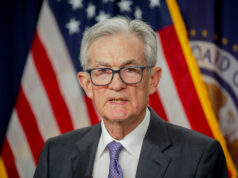In the name of mentoring and sharing experiences, theoretically to aid the beginners and the still unsure, conferences regularly feature established business icons, who can’t be bothered with actually delivering long speeches to “react” to those who do. The “panel of reactors” have nothing to do with clean energy. It is intended to put a real-world perspective on the proceedings.
Forums like the recent one held in Manila offer panel discussions as a break from one-sided lectures from the podium. The selection of panelists aims for variety, usually a manageable five or six in addition to the “moderator.” Aside from the balance in business sectors, there is an attempt to throw in academics and advocacy groups — contractualization of labor is too rampant.
The role of moderator is almost always assigned to a TV anchor. Maybe, forum organizers feel that the talk show host naturally qualifies for the chatty, no-loss-for-words assignment required to keep a discussion flowing, although here there are no commercial breaks. And she also gives her own opinions.
The host goes around the table and asks each of the panelists a question. It is considered bad form to have one guest brooding in silence and not being solicited for an opinion before the segment is over. The prospect of a yet overlooked panelist puts the host in a mild panic, as she scrambles to ask a question that suits the out-of-place character. An almost rhetorical question is thrown the way of the “only millennial in our panel” (read: somebody too low in the totem pole with nothing to contribute) — do you think economic growth is inclusive? Short answer: No, ma’am, it isn’t. Back to the others.
The TV training of hurrying speakers who are taking up too much time is a handy skill for the moderator to have. A panelist may actually be clutching cue cards on talking points and still managing to have long pauses between words and sentences (called dead air in TV parlance). Can the perky facilitator cut off icons, in their drooling stage, in mid-sentence? This rush to force a speaker to wind up or be cut off in the middle of a treatise on the post-colonial economy (we are living with a social volcano) arises from training too entrenched in TV hosts to stop everything to get to the commercials every eight minutes of the show.
The host promotes a narrative in her mind as she shuffles her own index cards provided by a research team. These include favorite bugbears — income inequality and the perils of believing in the trickle-down effect, poor infrastructure, slow internet speed, and the routine odious comparisons with other countries. Vietnam is the favorite reference point, as it gets more FDI; is it because they don’t have domestic investors? It’s always poised to overtake us — or has it already?
Moderators love the clash of ideas. The aim is to draw at least two of the seated targets to raise their voices. Talking heads, especially on stage, provide little visual appeal even with graphs and video clips of farmers (who don’t get any benefit from economic development). This is not a rock concert, after all. And so, the host is required to provoke controversy and have the guests go at each other. The resulting verbal fray is interrupted periodically: hold that thought — we have a question from the floor.
The panel is made up of a celebratory gathering of true believers in the country’s economic potential. The speakers provide flashes of pessimism and disappointment, usually coming from the locals. The little snipes about upbeat-perception-versus-sad-reality would have been best put on display after the foreign guests had left. But there is always a bigger crowd for international gatherings, and a chance to get a sound bite in the media coverage.
Reaction statements from panelists sitting around a table on the stage need to be taken with a grain of salt. The words tend to verge on the sensational. Like a beauty contestant trying to leave a good impression, the panelist is not out to get the prize for Miss Congeniality. It’s better to get a TV close-up and a mention in the coverage.
And then, it’s back to business as usual trying to get the bottom line right. In the real world, it’s the numbers, not the words that get all the attention.
A. R. Samson is chair and CEO of Touch DDB.



